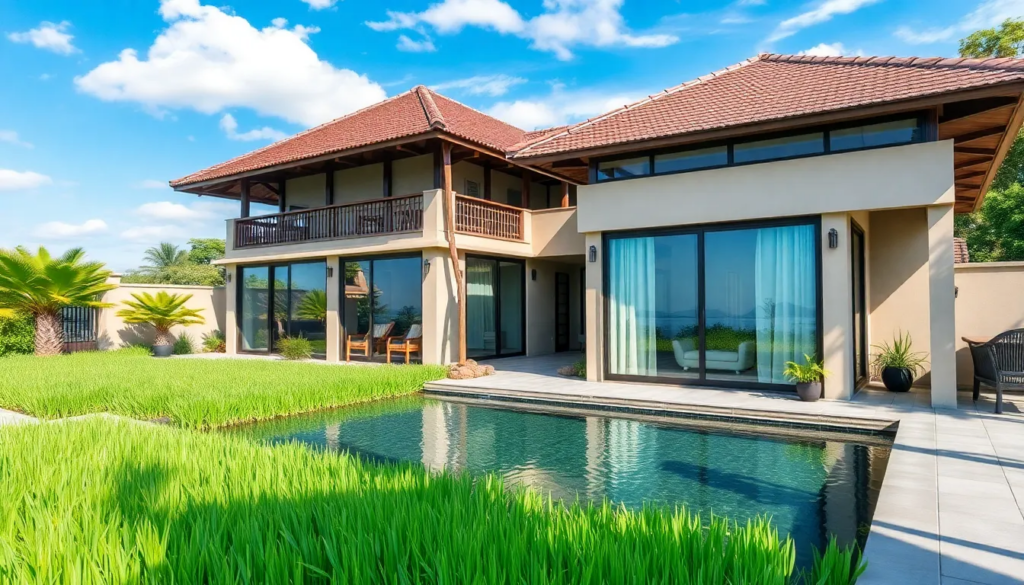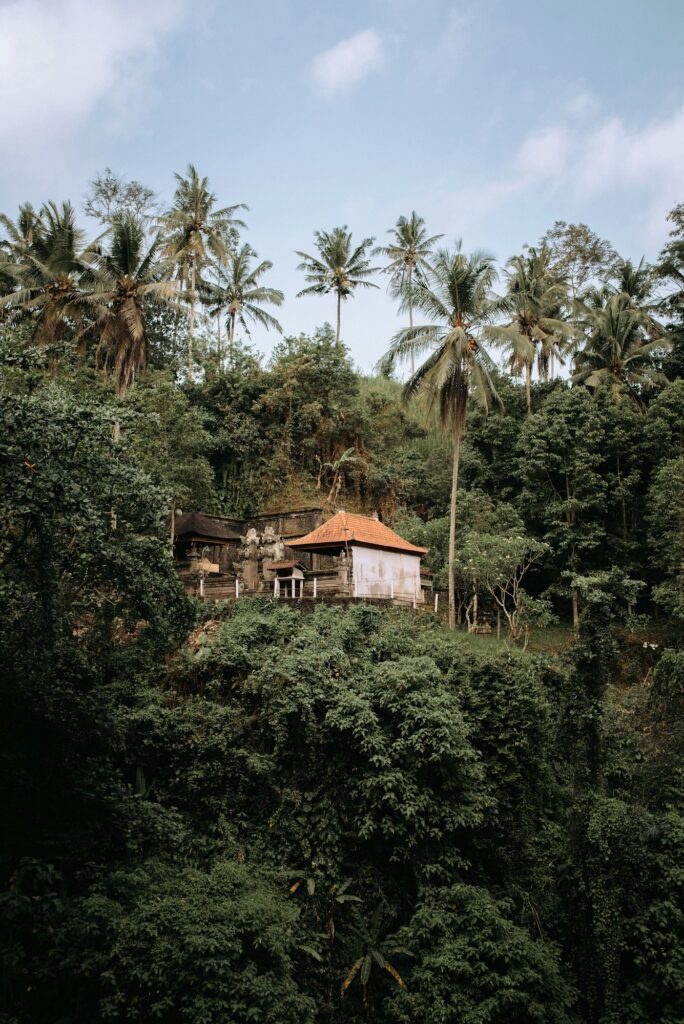Bali, often referred to as the “Island of the Gods,” has long been a favorite destination for both tourists and expats. Its stunning natural beauty, vibrant culture, and welcoming community draw people from all corners of the globe. Whether you’re looking for a luxurious lifestyle or a more budget-friendly living arrangement, Bali offers a wide range of choices to suit every preference. However, understanding the cost of living in Bali is crucial for anyone considering a move to this tropical paradise.

Key Factors Influencing Cost of Living in Bali
The cost of living in Bali can vary widely depending on several key factors:
- Lifestyle Choices: Your living costs will heavily depend on the lifestyle you choose. Opting for a more luxurious lifestyle with high-end accommodations, fine dining, and frequent entertainment will naturally result in higher expenses compared to a modest, budget-oriented lifestyle.
- Location within Bali: Where you choose to live in Bali significantly impacts your cost of living. Urban areas like Seminyak, Kuta, and Canggu are known for their bustling activities and can be more expensive. On the other hand, quieter regions like Candidasa offer a more serene environment at lower costs.
- Comparison to Western Countries: One of the main attractions of living in Bali is the comparatively lower cost of living. Housing, utilities, and groceries are generally more affordable than in many Western countries, making Bali an appealing option for expats.
- Local Economic Conditions: The economic conditions in Bali also play a role in the cost of living. Fluctuations in the local economy, such as changes in the value of the Indonesian Rupiah, can impact day-to-day expenses.
Detailed Breakdown of Living Expenses in Bali
Accommodation Costs
When it comes to accommodation in Bali, there are numerous options to suit a variety of preferences and budgets. You can either rent or purchase a property, each with its own set of costs and benefits.
Renting vs. Buying: Many expats prefer renting properties, especially if they are planning a short-term stay. Renting a one-bedroom apartment in urban areas like Seminyak or Kuta can cost anywhere between IDR 4,000,000 to IDR 10,000,000 per month, whereas in quieter areas like Candidasa, rental prices can be significantly lower. On the other hand, buying property involves a higher up-front cost but could serve as a worthwhile investment. Companies like Bounty Properties offer appealing property investments in places like Candidasa, where you can purchase a project and have it managed for rental income.
Monthly Utility Costs
Monthly utility expenses in Bali include electricity, water, internet, and other services. These costs can vary based on the size of your residence and usage. On average, you can expect to pay:
- Electricity: IDR 500,000 to IDR 1,200,000 per month, depending on air conditioning usage.
- Water: IDR 150,000 to IDR 300,000 per month.
- Internet: High-speed internet can range from IDR 300,000 to IDR 800,000 per month.
Tips on Managing Utility Costs Efficiently: To keep utility costs manageable, consider energy-efficient appliances, limit air conditioning use, and inquire about combined service packages for internet and utilities.
Food and Grocery Expenses
In Bali, food expenses can vary widely based on whether you dine out or cook at home. Here’s a rough breakdown:
Dining Out vs. Cooking at Home: Eating out at local warungs or food markets can be quite affordable, costing around IDR 20,000 to IDR 50,000 per meal. In contrast, dining at upscale restaurants can cost upwards of IDR 150,000 per meal. Cooking at home can save you money, with average grocery expenses for a month ranging from IDR 1,500,000 to IDR 3,000,000.
Popular Markets and Grocery Stores: For budget-friendly shopping, head to local markets like Sindhu Market or Ubud Market, where fresh produce is available at reasonable prices. Imported goods available at supermarkets like Pepito and Bintang are generally more expensive than local products.
Transportation Expenses
Transportation in Bali can include various options such as scooters, taxis, and local transport.
Overview of Transportation Options: Renting a scooter is a popular choice among expats for its affordability and convenience, costing approximately IDR 600,000 to IDR 1,500,000 per month. Taxis are another option, with rideshare apps like Gojek and Grab offering affordable rates. Local transport, like bemos and public buses, are the least expensive but also less convenient.
Average Monthly Transport Costs: Depending on your transportation needs, you can expect to spend around IDR 1,500,000 to IDR 3,000,000 each month.
Renting vs. Buying a Vehicle: While renting a scooter is common, purchasing one might be a worthy investment if you plan on staying long-term. Expect to pay around IDR 15,000,000 to IDR 25,000,000 for a new scooter.
Daily and Miscellaneous Expenses
In addition to the primary living costs, consider daily and miscellaneous expenses that can add up over time.
Health and Wellness: Health insurance costs can vary but typically range from IDR 500,000 to IDR 1,500,000 per month. Gym memberships are available for IDR 300,000 to IDR 1,000,000 per month. Medical services in Bali are generally affordable, with clinics offering consultations for as low as IDR 200,000.
Leisure Activities and Entertainment: Bali offers numerous entertainment options, from beaches to nightlife. Expect to spend around IDR 1,000,000 to IDR 2,000,000 per month on leisure activities.
Unexpected Costs: Be prepared for hidden expenses such as visa renewals, unexpected repairs, or occasional higher utility bills. Allocating extra funds for such costs can help manage your budget more effectively.
FAQ
What is the average monthly budget for a single person in Bali?
The average monthly budget for a single person in Bali can range from IDR 10,000,000 to IDR 20,000,000, depending on the individual’s lifestyle choices. This budget includes accommodation, utilities, food, transportation, and miscellaneous expenses.
How does living in Bali compare to living in a major Western city?
Compared to major Western cities, living in Bali is generally more affordable. Housing, utilities, and food costs are significantly lower, allowing expats to enjoy a comfortable lifestyle without the higher expenses commonly associated with Western urban living.
Are there any unexpected costs to watch out for when living in Bali?
Yes, there can be unexpected costs such as visa renewals, healthcare expenses, and occasional higher utility bills. It’s essential to allocate some extra funds in your budget to cover these potential unexpected costs.
What are the affordable neighborhoods in Bali for expats?
Affordable neighborhoods for expats include Candidasa, Sanur, and Ubud. These areas offer lower living costs compared to more popular tourist destinations like Seminyak and Kuta, while still providing a vibrant and welcoming community.
How much should I budget for health insurance and medical expenses?
Health insurance can range from IDR 500,000 to IDR 1,500,000 per month. Medical expenses are generally affordable, with basic consultations at clinics costing around IDR 200,000. It’s advisable to have health insurance to cover more significant medical needs.
Practical Tips for Affordable Living in Bali
Best practices for saving on accommodation and utilities: Consider sharing accommodation with roommates to split rental costs. Opt for energy-efficient appliances and minimize the use of air conditioning to save on utility bills.
Shopping tips: Shop at local markets like Sindhu Market and Ubud Market for fresh produce at reasonable prices. Avoid imported goods when possible, as they tend to be more expensive. Look for bulk buying discounts and stay updated on promotional deals at supermarkets.
Money-saving hacks for transportation: Renting a scooter is one of the most cost-effective transportation options. Consider long-term rentals for better rates. Use rideshare apps like Gojek or Grab for affordable taxi services and take advantage of bundled packages for frequent users.
How to live like a local to minimize costs: Immerse yourself in the local culture by dining at warungs and engaging in community activities. Attend local markets and fairs for entertainment. Building relationships with locals can also provide insights into more affordable lifestyle choices.
Understanding and managing the cost of living in Bali is key to enjoying a comfortable and fulfilling experience as an expat or tourist. By considering crucial factors such as lifestyle choices, location, and local economic conditions, you can better plan your budget and minimize expenses.
Planning strategically for accommodation, utilities, food, transportation, and miscellaneous expenses will help you achieve a balanced budget. Remember to allocate funds for unexpected costs and make use of practical tips to save money. By conducting thorough research and planning, you can ensure a smooth transition and an enjoyable stay in Bali.








